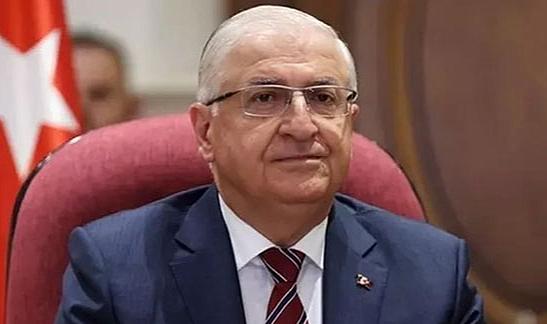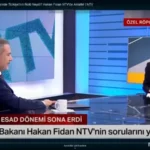According to an announcement made by Turkish Defence Minister Yaşar Güler, Turkey has indicated that it is prepared to provide assistance to the newly established Syrian administration, including the provision of military training and cooperation, should it be requested. This new step comes after President Bashar al-Assad was removed from power over the weekend, bringing an end to a civil war that had lasted for thirteen years.
Güler emphasized Turkey’s readiness to support the new Syrian government, offering military training and collaboration if requested. This message is part of Ankara’s broader narrative that frames Turkey as a stabilizing force in the region. “We believe we need to see what the new administration will do and give them a chance,” he said, echoing a diplomatic tone that contrasts with Turkey’s long-standing adversarial stance toward Damascus.
Military Cooperation on the Table
Through the use of military training agreements, Turkey, which is a member of NATO, has been able to retain close ties with a number of other countries. The statement made by Guler indicates that Ankara is willing to extend similar assistance to the newly elected leadership of Syria. “Turkey is ready to provide the necessary support if the new administration requests it,” according to the president.
Nevertheless, the military presence of Turkey in northern Syria, which is presently estimated to number a few thousand troops in places such as Afrin, Azez, and Ras al-Ain, continues to be a sensitive topic of discussion. Guler has said that Turkey is open to reconsidering its presence in collaboration with the next administration in the event that the “necessary conditions arise.”
Focus on Eliminating the YPG
Turkey has not wavered in its stance against the Kurdish YPG militia, which it considers to be an extension of the PKK, an organization that has been engaged in an insurgency against the Turkish state for several decades. In the struggle against Islamic State, the Syrian Democratic Forces (SDF), which are supported by the United States, are led by the Youth Protection Units (YPG).
“In the new period, the PKK/YPG terrorist organization in Syria will be eliminated sooner or later,” Güler stated in his statement. He provided an overview of Turkey’s expectations about the departure of foreign members of the organization from Syria and the absence of arms among local members.
Washington’s cooperation with the YPG under the premise of combating the Islamic State has been condemned by Ankara, which argues that it is incorrect to use one terrorist group to fight another terrorist group through the use of the YPG. “We see no resurgence of DAESH [Islamic State] in Syria, contrary to U.S. claims,” Guler stated, pointing out that Turkey had earlier volunteered to deploy soldiers to combat Islamic State and run the al-Hol detention camp, but the United States had rejected these plans.
Russia’s Continued Presence in Syria
While Assad has taken refuge in Russia, Güler expressed skepticism about a full Russian withdrawal from Syria. He noted that Moscow is consolidating its assets at the Hmeimim airbase and the naval facility in Tartous. “I don’t think the Russians are going to leave Syria. They’ll do everything they can to stay,” he remarked.
Turkey appears to be in a position to play a big role in defining the future of Syria while simultaneously protecting its national security interests as the region adjusts to the seismic changes that have occurred. In order to successfully navigate this new chapter in Syrian-Turkish ties, the international world is keeping a careful eye on Ankara as it attempts to strike a balance between military and diplomatic initiatives.



